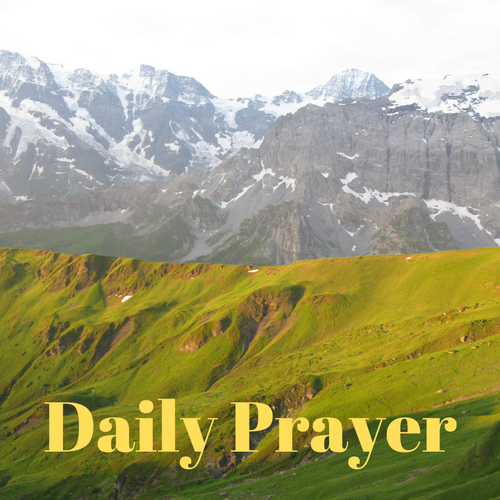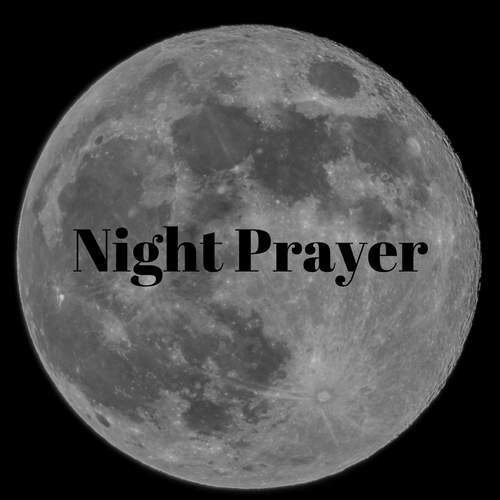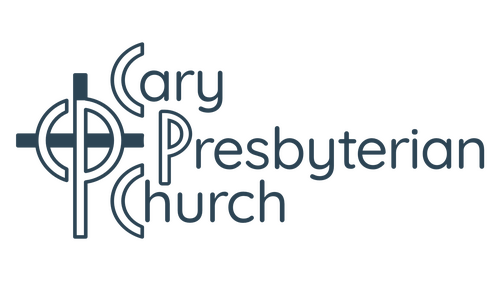

Daily Primer — July 29, Depart to Glasgow — Scotland
Each day you will be given:
A Florilegium entry
A Daily Prayer
and a Night Prayer.
A Florilegium entry
A Daily Prayer
and a Night Prayer.

Years ago I was in a seminary course on the subject of Sabbath and Sabbath-keeping. The first day the instructor asked the class, “Why do we keep Sabbath?” A variety of answers came forth: because it is one of the ten commandments; because the weekend provides an easy way to do that; et cetera. Eventually the instructor said, “We keep Sabbath because God keeps Sabbath.” It was the first time I connected the discipline I was attempting to establish in my life with the life of God – and that one observation helped me immensely to be a disciplined sabbath-keeper.
One might say a similar thing about the discipline of pilgrimage. We are pilgrims and we make our pilgrimages in emulation of God — who is a pilgrim-God. When we recite the Nicene Creed and profess, “For us and for our salvation he came down from heaven, was incarnate of the Holy Spirit and the Virgin Mary and became truly human,” we are describing a God who left God’s “home” in order to make sojourning among us God’s pilgrimage.
The very first creedal statement we have in scripture is in Deuteronomy 26 and describes the pilgrimage of Abram and Sarai and their descendants:
“A wandering Aramean was my ancestor; he went down into Egypt and lived there as an alien, few in number, and there he became a great nation, mighty and populous. 6 When the Egyptians treated us harshly and afflicted us, by imposing hard labor on us, 7 we cried to the Lord, the God of our ancestors; the Lord heard our voice and saw our affliction, our toil, and our oppression. 8 The Lord brought us out of Egypt with a mighty hand and an outstretched arm, with a terrifying display of power, and with signs and wonders; 9 and he brought us into this place and gave us this land, a land flowing with milk and honey.
[Deuteronomy 26:4-9, NRSV]
And when Matthew describes the early life of Jesus, it is not surprising that he literally recreates the journey to Egypt and back to the Promised Land [Matthew chapter 2]. These various statements of faith and narratives which are at the heart of our scriptural legacy describe an elliptical journey from home to a place at the margins and then back homeward again. And yet, it is a curiosity that, while our ancestors in the faith return in a homeward direction, they often cannot return “home.” Abram and Sarai do not return to Ur, nor even to Haran. Jesus and his parents do not return to Bethlehem but instead settle in Nazareth upon their return “home.” The perambulations of pilgrimage seem to leave home as an elusive destination.
The process of pilgrimage seems to naturally lean toward the transitional, the provisional, the slightly uncertain. If “home” can be understood as the place for certitude and settled-assumptions, then “pilgrimage” is to sojourn in the land of possibilities and hopes-not-yet-fully-realized. So why would we choose the possibility and uncertainty of pilgrimage over certainty? I think we choose pilgrimage for love. Love of God, love of the others we will encounter, and love of ourselves too. For it is love that gives birth to God’s pilgrimage among us. The incarnation of God in Jesus is described by John’s gospel in this way:
And the Word became flesh and lived among us, and we have seen his glory, the glory as of a father’s only son, full of grace and truth . . . 16 From his fullness we have all received, grace upon grace.
[John 1:14,16 NRSV]
It is God’s grace-full impulse, an unmerited love for God’s creatures, which brings God to us in the person of Jesus.
We too are drawn into pilgrimage by an impulse to love; journeying in search of a God we have known about our whole lives but never loved; or perhaps to learn to love ourselves as God loves us; or maybe to learn to love all of God’s children everywhere by sojourning among them and discovering that they too belong to God. If we are new to the discipline of pilgrimage and are wondering how to do it well, I am reminded of a line from brother Carlo Carretto in his Letters from the Desert:
“Live love. Let love invade you. It will never fail to teach you what you must do.”
One might say a similar thing about the discipline of pilgrimage. We are pilgrims and we make our pilgrimages in emulation of God — who is a pilgrim-God. When we recite the Nicene Creed and profess, “For us and for our salvation he came down from heaven, was incarnate of the Holy Spirit and the Virgin Mary and became truly human,” we are describing a God who left God’s “home” in order to make sojourning among us God’s pilgrimage.
The very first creedal statement we have in scripture is in Deuteronomy 26 and describes the pilgrimage of Abram and Sarai and their descendants:
“A wandering Aramean was my ancestor; he went down into Egypt and lived there as an alien, few in number, and there he became a great nation, mighty and populous. 6 When the Egyptians treated us harshly and afflicted us, by imposing hard labor on us, 7 we cried to the Lord, the God of our ancestors; the Lord heard our voice and saw our affliction, our toil, and our oppression. 8 The Lord brought us out of Egypt with a mighty hand and an outstretched arm, with a terrifying display of power, and with signs and wonders; 9 and he brought us into this place and gave us this land, a land flowing with milk and honey.
[Deuteronomy 26:4-9, NRSV]
And when Matthew describes the early life of Jesus, it is not surprising that he literally recreates the journey to Egypt and back to the Promised Land [Matthew chapter 2]. These various statements of faith and narratives which are at the heart of our scriptural legacy describe an elliptical journey from home to a place at the margins and then back homeward again. And yet, it is a curiosity that, while our ancestors in the faith return in a homeward direction, they often cannot return “home.” Abram and Sarai do not return to Ur, nor even to Haran. Jesus and his parents do not return to Bethlehem but instead settle in Nazareth upon their return “home.” The perambulations of pilgrimage seem to leave home as an elusive destination.
The process of pilgrimage seems to naturally lean toward the transitional, the provisional, the slightly uncertain. If “home” can be understood as the place for certitude and settled-assumptions, then “pilgrimage” is to sojourn in the land of possibilities and hopes-not-yet-fully-realized. So why would we choose the possibility and uncertainty of pilgrimage over certainty? I think we choose pilgrimage for love. Love of God, love of the others we will encounter, and love of ourselves too. For it is love that gives birth to God’s pilgrimage among us. The incarnation of God in Jesus is described by John’s gospel in this way:
And the Word became flesh and lived among us, and we have seen his glory, the glory as of a father’s only son, full of grace and truth . . . 16 From his fullness we have all received, grace upon grace.
[John 1:14,16 NRSV]
It is God’s grace-full impulse, an unmerited love for God’s creatures, which brings God to us in the person of Jesus.
We too are drawn into pilgrimage by an impulse to love; journeying in search of a God we have known about our whole lives but never loved; or perhaps to learn to love ourselves as God loves us; or maybe to learn to love all of God’s children everywhere by sojourning among them and discovering that they too belong to God. If we are new to the discipline of pilgrimage and are wondering how to do it well, I am reminded of a line from brother Carlo Carretto in his Letters from the Desert:
“Live love. Let love invade you. It will never fail to teach you what you must do.”
Devotion from 2011 concluding with a quote from:
Carlo Carretto Letters From The Desert. Chapter 4, p. 23.
Carlo Carretto Letters From The Desert. Chapter 4, p. 23.
Florilegium is the Medieval Latin word for bouquet, or more literally flowers (flos, flor-) which are gathered (legere). The word florilegium was used to refer to a compilation of writings, often religious or philosophical. These florilegium are literary flowers—beautiful words/prayers/thoughts I have gathered. During my sabbatical they will give me something to ponder each day. — PHL.

Gracious God, who forgives the guilt of my sin, meet me now, I pray, as I make my confession. I know that those whose sin is covered are happy. I know the blessedness of having my guilt taken away. Yet, with the Psalmist I confess that too often I keep silent. I hide from you in the face of my sin. I know the depth of my failure to love you and serve you always — and I fail to trust in your even deeper loving forgiveness. I let my secret sins haunt me, and eat away at me, and depress me.
Help me Lord to trust you as I meet you in penitence.
Hear my prayers for sins of omission:
† failing to love others as you command . . .
† failing to visit those in need . . .
† failing to remember the lonely and forgotten . . .
† failing to act when justice demands it . . .
† failing to be generous with others . . .
Hear also my prayers for sins of commission:
† hubris expressed in self-centeredness . . .
† self-righteousness which leads me to focus on my neighbor’s faults . . .
† destructive attitudes and appetites which enslave me . . .
† being quick to anger and slow to forgive . . .
† being eager to speak but not to listen . . .
And now Lord, as I consider the remainder of
the day, help me to amend my ways. Aid me that I might complete every good thing I resolve to do. Lord, show me your love and mercy, for I put my trust in you. Amen.
Help me Lord to trust you as I meet you in penitence.
Hear my prayers for sins of omission:
† failing to love others as you command . . .
† failing to visit those in need . . .
† failing to remember the lonely and forgotten . . .
† failing to act when justice demands it . . .
† failing to be generous with others . . .
Hear also my prayers for sins of commission:
† hubris expressed in self-centeredness . . .
† self-righteousness which leads me to focus on my neighbor’s faults . . .
† destructive attitudes and appetites which enslave me . . .
† being quick to anger and slow to forgive . . .
† being eager to speak but not to listen . . .
And now Lord, as I consider the remainder of
the day, help me to amend my ways. Aid me that I might complete every good thing I resolve to do. Lord, show me your love and mercy, for I put my trust in you. Amen.
From Pocket Prayers - Tuesday -Midday. PHL

You are the bread of heaven, the staff of life. In you there is manna which satisfies the hungry heart. For everything which has nourished me today and which has revitalized your life within me I give thanks. Throughout the day you have remained with me — for where could I go where your light did not reach me? Even if I was to say, “ ‘Let the darkness cover me, and the light around me be night,’ even darkness is not dark to you and night is as clear as the day.” I give all praise to you who are sovereign over both the day and the night.
Especially I praise you:
† for the sparkle of sunlight on water,
† for candle glow and fireplace flickering,
† for the radiance of an inner light I see in the saints I meet,
† for the lamp of your Word illuminating the path for my feet,
For these and many other blessings of the light I offer praise and thanksgiving.
I know of your word, spoken through the prophet, that I stand at the crossroads, and look, and ask for the ancient paths, where the good way lies, and walk in it, and find rest for my soul. I also know that sometimes I respond as did my ancestors, saying, “I will not walk in it.” So I pause at this hour to reflect on my day in examination of conscience — expecting to find you in both my successes and failures as a disciple. Help me, Lord, to practice self-examination with clarity, honesty, and trust.
— a few minutes of silence are observed for the practice of the examen —
You have offered me the bread of life — yet I see that sometimes I have preferred junk-food. Forgive me, Lord, as I forgive those who are indebted to me. Save me from the time of trial and deliver me from evil. Instruct me in both consolation and desolation about where the good way lies and help me to more faithfully walk in it.
As the shadows lengthen and the daylight fades, I
seek your mercy in helping me to cast off the sin which clings to me, that I might put on the wardrobe of your love and light. Clothe me in your compassion and keep me from all harm, in the name of the Father, and the Son, and the Holy Spirit. Amen.
Especially I praise you:
† for the sparkle of sunlight on water,
† for candle glow and fireplace flickering,
† for the radiance of an inner light I see in the saints I meet,
† for the lamp of your Word illuminating the path for my feet,
For these and many other blessings of the light I offer praise and thanksgiving.
I know of your word, spoken through the prophet, that I stand at the crossroads, and look, and ask for the ancient paths, where the good way lies, and walk in it, and find rest for my soul. I also know that sometimes I respond as did my ancestors, saying, “I will not walk in it.” So I pause at this hour to reflect on my day in examination of conscience — expecting to find you in both my successes and failures as a disciple. Help me, Lord, to practice self-examination with clarity, honesty, and trust.
— a few minutes of silence are observed for the practice of the examen —
You have offered me the bread of life — yet I see that sometimes I have preferred junk-food. Forgive me, Lord, as I forgive those who are indebted to me. Save me from the time of trial and deliver me from evil. Instruct me in both consolation and desolation about where the good way lies and help me to more faithfully walk in it.
As the shadows lengthen and the daylight fades, I
seek your mercy in helping me to cast off the sin which clings to me, that I might put on the wardrobe of your love and light. Clothe me in your compassion and keep me from all harm, in the name of the Father, and the Son, and the Holy Spirit. Amen.
from Pocket Prayers - Tuesday - Vespers. PHL. John 8:12, 9:5; Luke 24:29; Rev. 22:20; Psalm 141:2; Psalm 139:7-12; Colossians 3:12-16; Jer. 6:16; Luke 11:4
